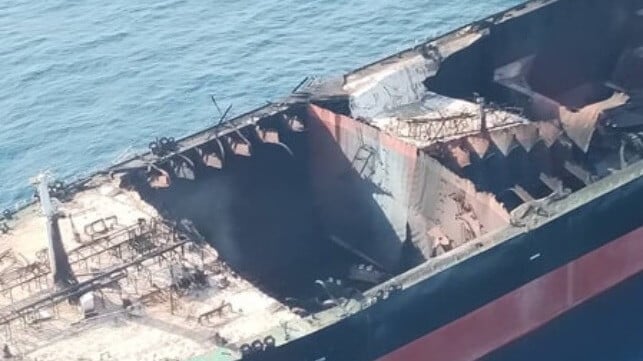Barstad: "Shadow Fleet" Sanctions Need Exception for Scrapping

The "shadow fleet" of tankers serving Russia, Iran and Venezuela are on average much older than the "compliant" tanker market, and many are overdue for scrapping. But with American and European sanctions on much of the fleet, it's hard for cash buyers and scrappers to buy these old ships for demolition and take them off the water. As these ships age out of profitable operation, they may have nowhere to go. That's a potential environmental and safety risk, says Lars Barstad, CEO of tanker giant Frontline - a risk that regulators may need to address soon.
"I think actually there needs to be set up some sort of rules for exemptions for recycling [for shadow fleet tankers]. And this is typically where IMO as a UN organization can take a strong initiative," Barstad said in an earnings call last week. "The scary picture is that these vessels will sit somewhere in Southeast Asia . . . and just be kind of floating environmental bombs."
The risk is not theoretical, and there have been problems before. In 2023, the tanker Pablo - sanctioned by the U.S. for carrying Iranian oil - exploded at an anchorage in Malaysia, blowing the main deck off and leaving three crewmembers missing. A suspected Iran-linked shadow fleet tanker, Ceres I, was involved in a dramatic collision and explosion off Malaysia in 2024. And many vessels in the Russia-linked dark fleet are known to operate without valid insurance for spills. There are hundreds of tankers in the shadow fleet that are blacklisted by the U.S. Office of Foreign Asset Control (OFAC) or the European Union, many aging fast towards retirement (or already past the typical point for retiring).

that matters most
Get the latest maritime news delivered to your inbox daily.
If these vessels could be exempted from sanctions, sold to cash buyers and scrapped - like normal "compliant" tankers - the demolition sales would generate more profits for the anonymous owners of shadow fleet tankers. These shadowy owners could then renew their non-compliant fleets with "new" secondhand tonnage. But it would also provide an industry service by clearing out old, dangerous tonnage that currently has nowhere to go.
"Hopefully, this is going to come up higher on the agenda from the regulators, hopefully higher than decarbonization. So have that conversation first and then we can talk on the decarb later," Barstad said. "On timing, it's regretful that these processes take very, very long until they sit kind of in front."
